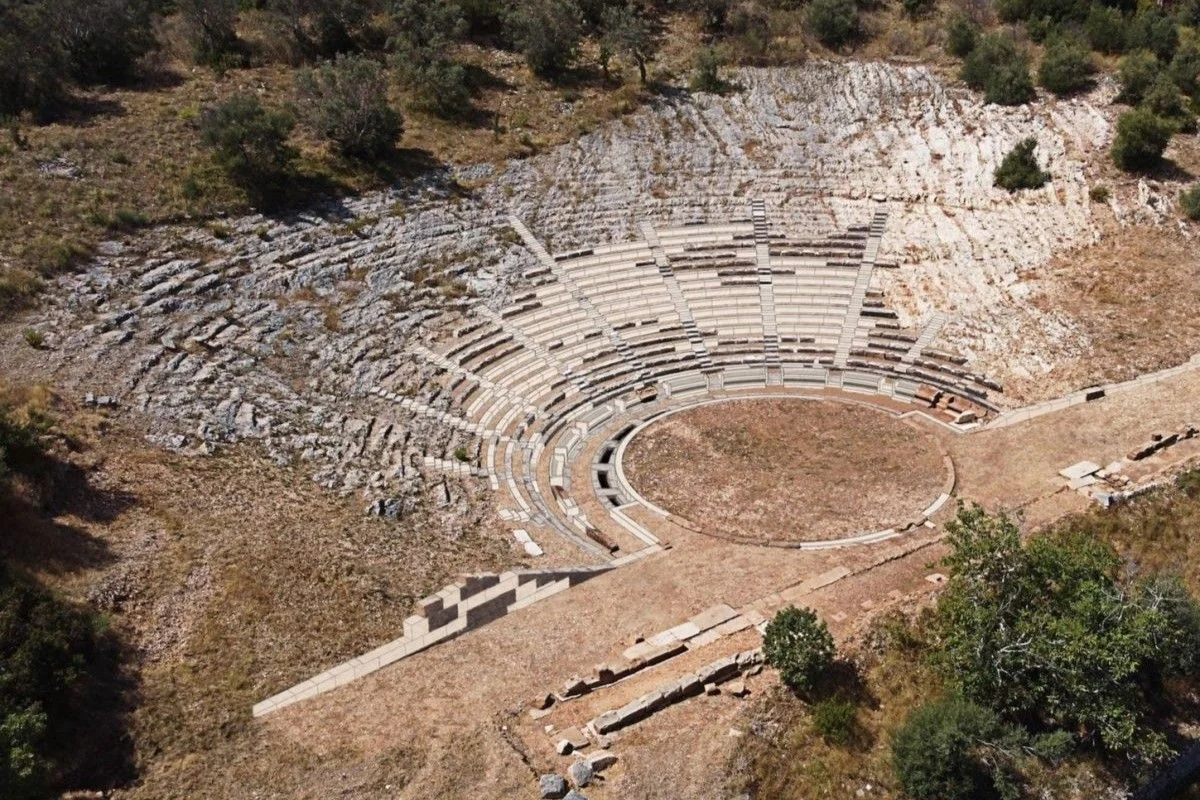Archaeologists have discovered an Ancient Greek theatre during a long-term study on the island of Lefkada, located in the Ionian Sea on the west coast of Greece.
Lefkada became a significant centre of trade and culture in the 8th–7th century BC, when Corinthian colonists transformed the island’s main settlement into a fortified polis with harbours and monumental public buildings.
Archaeologists have spent almost a century searching for traces of a theatre that served the polis. It was in 1997 that, thanks to a careful analysis of the geomorphology of the island’s interior and surface remains, they finally uncovered evidence beneath olive groves and modern construction.
Beginning in 2015, under the direction of Olympia Vikatou, systematic excavations were conducted, supported by the Municipality of Lefkada and the DIAZOMA association.
A full-scale excavation commenced in 2017 to remove the olive groves and structures that encroached upon the site, revealing a large circular orchestra measuring 16.65 metres in diameter, with side corridors (parodoi), and intricately decorated stone thrones.
The theatre has a cavea with 24 rows of seats, which experts estimate could have accommodated an audience of up to 10,000 people. Despite damage caused by centuries of agricultural activity, the lower sections of the theatre remain well-preserved.
Plans for restoration are underway, with a completed preservation study and a proposed co-financing program aimed at securing the theatre’s future. Once approved, the project will be ready for inclusion in a co-financed cultural development program led by the Greek Ministry of Culture.
Header Image Credit : Ministry of Culture – N. Hatzidakis
Sources : Ministry of Culture





